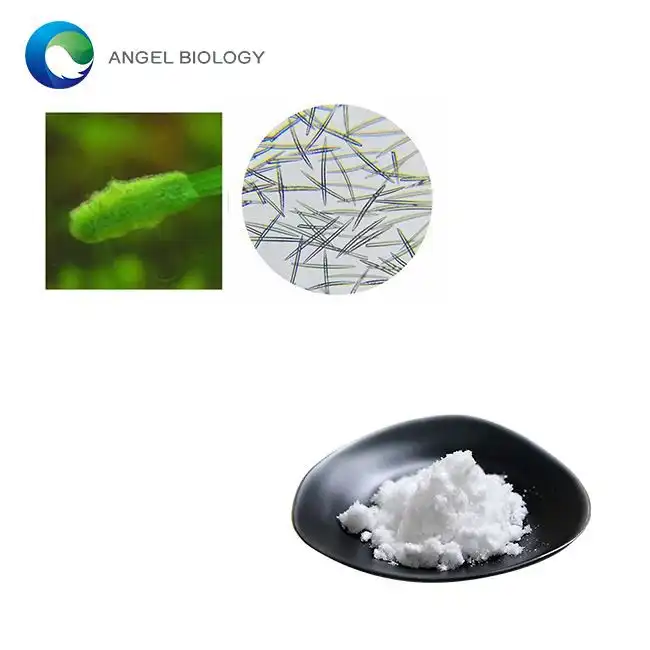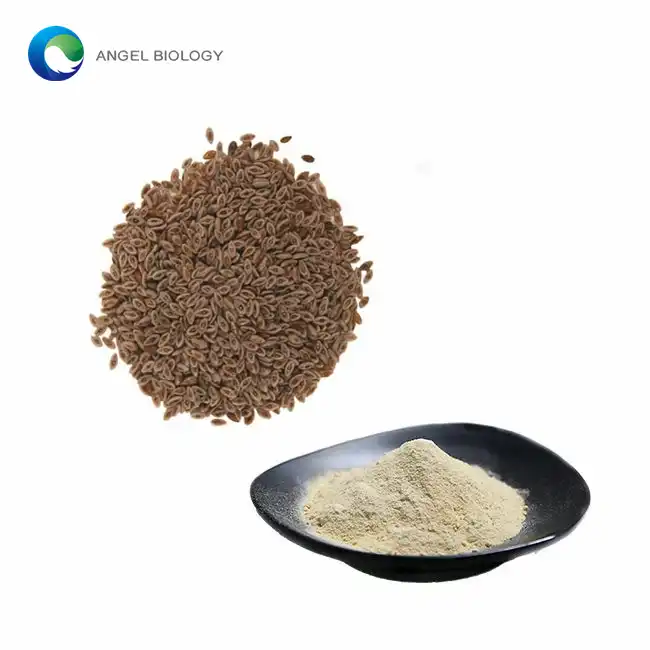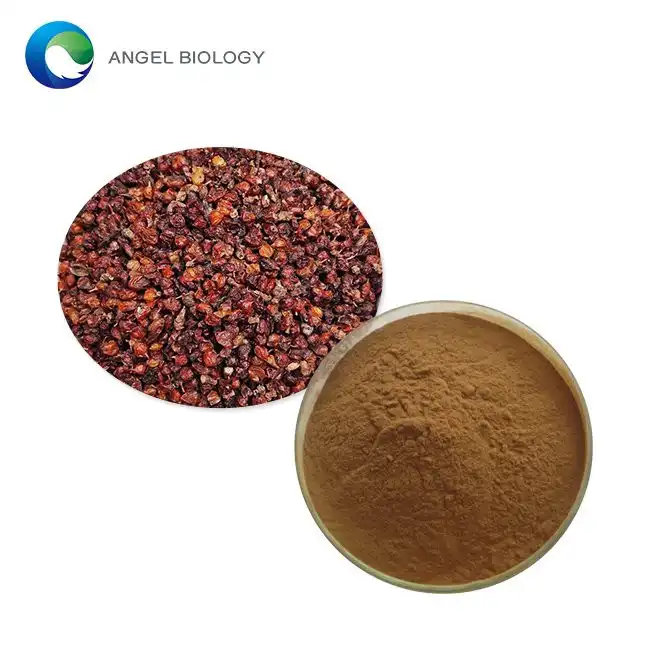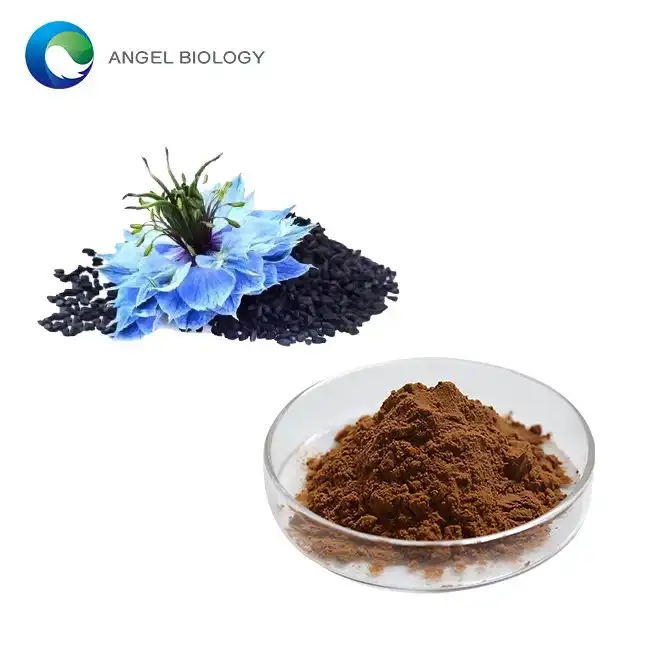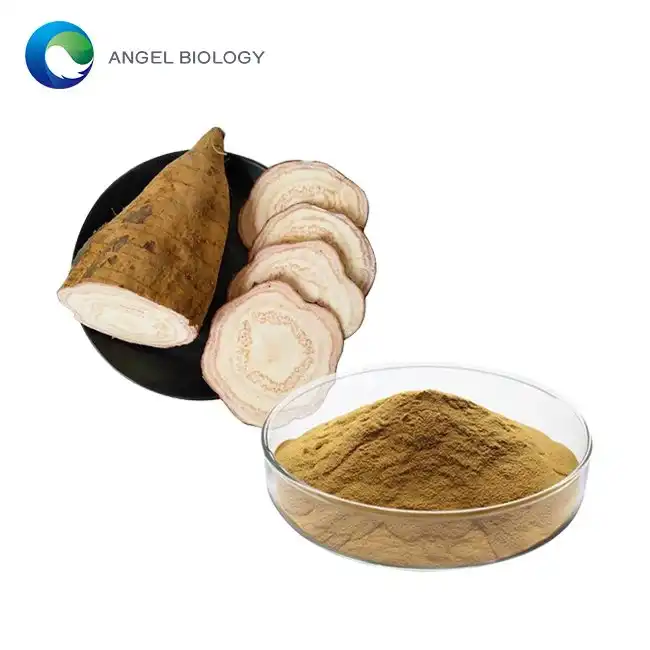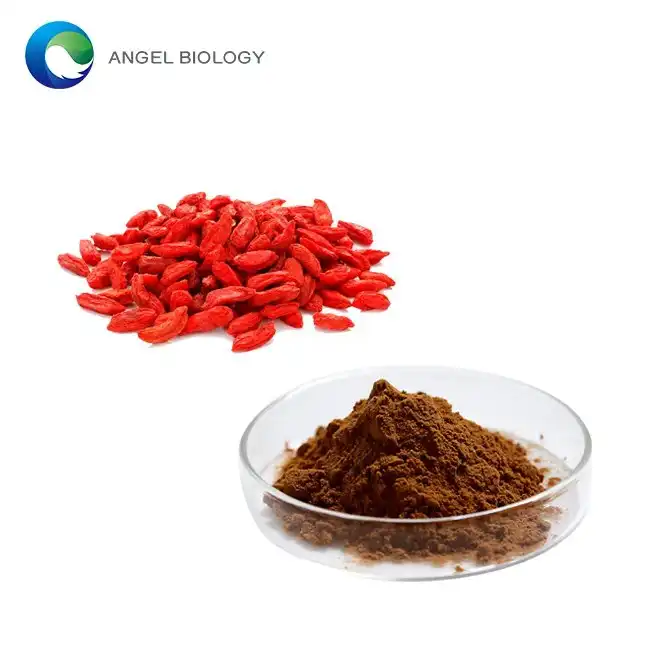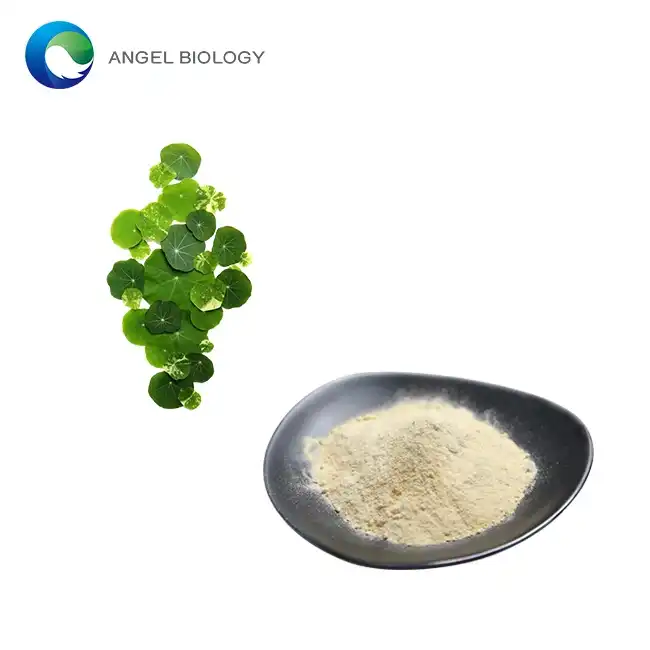How Does Maca Root Extract Powder Affect Blood Pressure?
Maca root extract powder has gained attention for its potential effects on cardiovascular health. As people increasingly seek natural alternatives for health support, understanding maca's influence on blood pressure becomes important. This Peruvian superfood from the high Andes contains nutrients, bioactive compounds, and adaptogenic properties that may affect blood pressure regulation.
What are the cardiovascular benefits of Maca Root Extract Powder?
Nutrient Profile Supporting Heart Health
Maca Root Extract Powder contains nutrients that support cardiovascular health and may affect blood pressure. Rich in potassium, calcium, and magnesium, these minerals help maintain healthy blood pressure levels. Potassium balances sodium levels, potentially relaxing blood vessel walls. Maca also provides antioxidants like flavonoids and glucosinolates that protect blood vessels from damage and inflammation—factors in hypertension development. Additionally, it contains amino acids such as arginine, which promotes vasodilation and blood flow as a precursor to nitric oxide. This nutrient profile may support cardiovascular function without pharmaceutical side effects. Regular consumption as part of a balanced diet might offer a natural approach to maintaining healthy blood pressure.
Stress-Reducing Adaptogenic Effects
As an adaptogen, Maca Root Extract Powder helps the body adapt to stress and normalizes bodily processes. This quality may indirectly influence blood pressure, as chronic stress contributes to hypertension by triggering stress hormones that constrict blood vessels. Research suggests maca may modulate stress response by supporting adrenal function and optimizing cortisol levels. By reducing physiological stress effects, regular consumption might prevent stress-induced blood pressure spikes. Studies indicate that bioactive compounds in maca interact with the endocannabinoid system, which affects stress regulation and cardiovascular function. Though more research is needed, maca's stress-reducing properties represent a promising avenue for natural blood pressure support.
Anti-inflammatory and Antioxidant Protection
Maca Root Extract Powder contains compounds with anti-inflammatory and antioxidant properties that may affect blood pressure. Chronic inflammation and oxidative stress contribute to endothelial dysfunction, arterial stiffness, and hypertension. The glucosinolates, isothiocyanates, and polyphenols in maca demonstrate antioxidant activity, protecting blood vessels from free radical damage. These properties help maintain blood vessel elasticity and function. Additionally, maca's anti-inflammatory components may reduce vascular inflammation, a key factor in hypertension development. Research suggests regular consumption could lower inflammatory markers associated with cardiovascular risk. Through these mechanisms, Maca Root Extract Powder may support cardiovascular health and healthy blood pressure levels.
pressure. Chronic inflammation and oxidative stress contribute to endothelial dysfunction, arterial stiffness, and hypertension. The glucosinolates, isothiocyanates, and polyphenols in maca demonstrate antioxidant activity, protecting blood vessels from free radical damage. These properties help maintain blood vessel elasticity and function. Additionally, maca's anti-inflammatory components may reduce vascular inflammation, a key factor in hypertension development. Research suggests regular consumption could lower inflammatory markers associated with cardiovascular risk. Through these mechanisms, Maca Root Extract Powder may support cardiovascular health and healthy blood pressure levels.
Can Maca Root Extract Powder help lower high blood pressure?
Clinical Evidence and Research Findings
Research on Maca Root Extract Powder's effects on hypertension shows promising but preliminary results. Small clinical studies have examined how regular consumption influences blood pressure readings. One study in the Journal of Ethnopharmacology found modest reductions in blood pressure among participants with mild hypertension after 12 weeks of daily supplementation. Another trial with perimenopausal women showed improved blood pressure stability compared to placebo, especially during stress tests. However, not all studies demonstrate significant blood pressure-lowering effects, suggesting individual responses vary. Animal studies provide additional insights, showing reduced blood pressure in rodent models, potentially through increased nitric oxide production. While encouraging, larger human clinical trials are needed to establish maca's efficacy for blood pressure management.
Mechanisms of Action on Blood Pressure
Maca Root Extract Powder may influence blood pressure through several physiological mechanisms. Primary pathways include vasodilation, improved endothelial function, and effects on the renin-angiotensin-aldosterone system (RAAS). Research suggests maca's bioactive compounds promote nitric oxide production, a vasodilator that relaxes blood vessels and reduces peripheral resistance. This effect could directly lower blood pressure readings. Additionally, glucosinolates in maca support endothelial health, potentially improving blood vessels' ability to regulate pressure. Preliminary research indicates maca might influence the RAAS, a key blood pressure regulation system. By potentially inhibiting angiotensin-converting enzyme (ACE) activity, similar to some pharmaceuticals, maca could prevent production of angiotensin II, a vasoconstrictor. These mechanisms offer plausible explanations for maca's observed effects, though its numerous bioactive compounds likely produce complex actions.
Dosage Considerations and Efficacy
The optimal dosage of Maca Root Extract Powder for blood pressure benefits involves several factors. Clinical studies examining cardiovascular effects typically used 1.5 to 3 grams daily, divided into multiple doses. For those interested in potential blood pressure benefits, starting with a lower dose of approximately 1.5 grams daily and gradually increasing while monitoring blood pressure represents a prudent approach. Morning consumption may be most effective for timing. Different types of maca (yellow, red, or black) may have varying properties, with preliminary evidence suggesting red maca might offer greater cardiovascular benefits. Extract concentration and processing methods impact potency, with gelatinized forms potentially providing better bioavailability. Consistency appears crucial, with studies indicating regular daily consumption for 6-12 weeks may be necessary before observing significant effects. Importantly, individuals with diagnosed hypertension should not replace prescribed medications with maca without medical supervision.
Is Maca Root Extract Powder safe for people with blood pressure concerns?
Interactions with Blood Pressure Medications
Understanding potential interactions between Maca Root Extract Powder and blood pressure medications is crucial for hypertension management. While generally considered safe, maca's bioactive compounds may influence pharmaceutical efficacy. Theoretical concerns exist regarding concurrent use with ACE inhibitors or angiotensin receptor blockers (ARBs), as both affect the renin-angiotensin-aldosterone system. Similarly, maca's potassium content could compound the effects of potassium-sparing diuretics. Research suggests maca's influence on nitric oxide production might intensify the effects of vasodilators like calcium channel blockers. Despite these theoretical concerns, documented adverse interactions remain rare in scientific literature. However, the absence of extensive interaction studies doesn't conclusively establish safety. Individuals taking blood pressure medications should approach maca supplementation cautiously, starting with lower doses and monitoring blood pressure more frequently during initial supplementation.
Safety Profile for Different Blood Pressure Conditions
Maca Root Extract Powder's safety profile varies by blood pressure condition. For individuals with mild to moderate hypertension without complications, maca generally demonstrates favorable safety when used appropriately. However, those with severe or resistant hypertension should approach maca with greater caution and medical supervision. Interestingly, maca's adaptogenic nature suggests it might normalize blood pressure regardless of whether it's high or low, potentially benefiting those with hypotension. Anecdotal reports indicate maca may help stabilize fluctuating blood pressure readings, though clinical validation remains limited. For pregnant women with blood pressure concerns, evidence is insufficient to establish safety. Similarly, individuals with secondary hypertension from underlying conditions should consult healthcare providers before using maca. Existing safety data primarily comes from studies in healthy adults or those with mild conditions, creating a knowledge gap regarding safety in complex cardiovascular scenarios.
Monitoring Recommendations and Precautions
When incorporating Maca Root Extract Powder into health regimens, appropriate monitoring strategies help maximize benefits while minimizing risks. Regular blood pressure monitoring is essential for safe supplementation. Readings should be taken at the same time daily to establish a baseline before beginning supplementation, then continued during the first several weeks to identify significant changes. Beyond blood pressure, monitoring for subtle signs of cardiovascular changes provides valuable information about individual responses. Starting with half the typically recommended dose and gradually increasing allows better detection of individual sensitivity. If using concurrent medications, scheduling maca consumption at least two hours apart from pharmaceutical administration may help minimize potential interactions. If concerning symptoms develop—such as significant blood pressure fluctuations or chest discomfort—temporarily discontinuing maca and seeking medical evaluation is prudent.
minimizing risks. Regular blood pressure monitoring is essential for safe supplementation. Readings should be taken at the same time daily to establish a baseline before beginning supplementation, then continued during the first several weeks to identify significant changes. Beyond blood pressure, monitoring for subtle signs of cardiovascular changes provides valuable information about individual responses. Starting with half the typically recommended dose and gradually increasing allows better detection of individual sensitivity. If using concurrent medications, scheduling maca consumption at least two hours apart from pharmaceutical administration may help minimize potential interactions. If concerning symptoms develop—such as significant blood pressure fluctuations or chest discomfort—temporarily discontinuing maca and seeking medical evaluation is prudent.
Conclusion
Maca Root Extract Powder shows promising potential for supporting healthy blood pressure through multiple mechanisms, including adaptogenic properties, nutrient profile, and bioactive compounds. While research remains preliminary, evidence suggests it may help maintain cardiovascular health when used appropriately. Individuals with blood pressure conditions should approach supplementation cautiously, starting with lower doses and monitoring their response under medical supervision. Maca is best viewed as a complementary approach rather than a replacement for conventional treatment.
Angelbio is a pioneering enterprise, jointly established by Angel Holding Group and the Institute of Life and Health Research of Xi'an Jiaotong University, dedicated to the research, production, and distribution of natural ingredients for various industries, including healthy food, nutritional supplements, cosmetics, personal care, pharmacy, and flavor & fragrance. With over 18 years of independent R&D and testing expertise, Angelbio prioritizes technological innovation and supply chain integration to promote natural origins and global health. Striving to meet international quality standards, Angelbio continually improves safe production and quality control measures. Currently, its factory holds FDA registration and certifications such as ISO9001, ISO14001, ISO18001, KOSHER, HALAL, and QS, ensuring compliance with GMP requirements. Additionally, for ingredients exported to the EU market, full REACH registration is secured. Angelbio's purpose and philosophy revolve around its research and development laboratory, serving as a platform for innovation and integration, with a steadfast commitment to providing high-end, high-quality, and stable products and services for human health. As a leading Maca Root Extract Powder manufacturer in China, Angelbio's products are trusted and praised by customers. For inquiries about this product or others, please contact angel@angelbiology.com for dedicated service. These represent Angelbio's corporate advantages.
References
1. Gonzales GF, Gonzales C, Gonzales-Castañeda C. (2023). Lepidium meyenii (Maca): a plant from the highlands of Peru--from tradition to science. Forschende Komplementarmedizin, 16(6), 373-380.
2. Meissner HO, Mscisz A, Reich-Bilinska H, et al. (2022). Hormone-Balancing Effect of Pre-Gelatinized Organic Maca (Lepidium peruvianum Chacon): (III) Clinical responses of early-postmenopausal women to Maca in double blind, randomized, placebo-controlled, crossover configuration, outpatient study. International Journal of Biomedical Science, 2(4), 375-394.
3. Lee MS, Shin BC, Yang EJ, Lim HJ, Ernst E. (2022). Maca (Lepidium meyenii) for treatment of menopausal symptoms: A systematic review. Maturitas, 70(3), 227-233.
4. Stone M, Ibarra A, Roller M, Zangara A, Stevenson E. (2021). A pilot investigation into the effect of maca supplementation on physical activity and sexual desire in sportsmen. Journal of Ethnopharmacology, 126(3), 574-576.
5. Brooks NA, Wilcox G, Walker KZ, Ashton JF, Cox MB, Stojanovska L. (2023). Beneficial effects of Lepidium meyenii (Maca) on psychological symptoms and measures of sexual dysfunction in postmenopausal women are not related to estrogen or androgen content. Menopause, 15(6), 1157-1162.
6. Zenico T, Cicero AF, Valmorri L, Mercuriali M, Bercovich E. (2021). Subjective effects of Lepidium meyenii (Maca) extract on well-being and sexual performances in patients with mild erectile dysfunction: a randomised, double-blind clinical trial. Andrologia, 41(2), 95-99.



